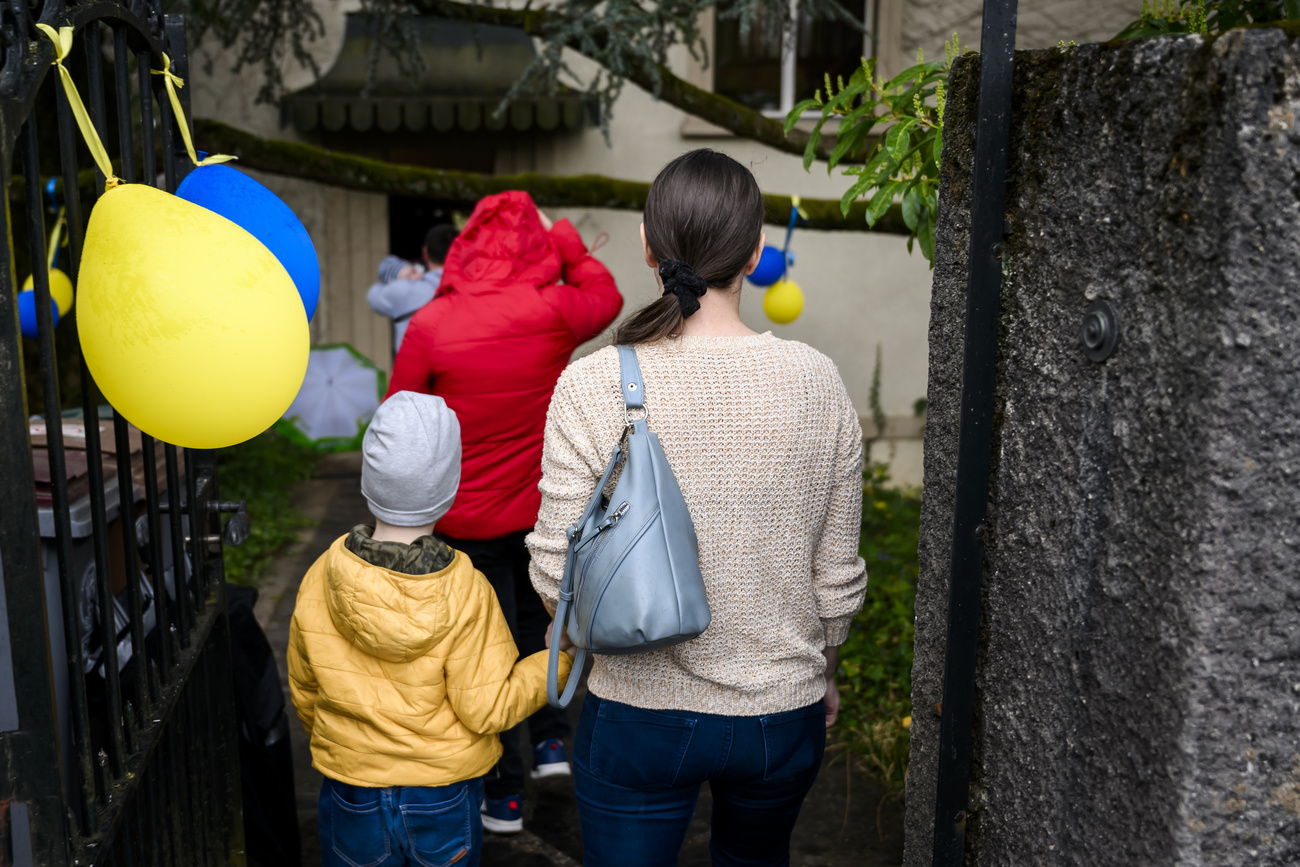
Government plans for return of Ukrainian refugees

The Swiss government on Friday “took note” of a provisional plan for the departure of Ukrainian refugees with protected “S” status, but has not taken any specific decision on lifting this status.
On March 12, 2022, Switzerland activated protection status S for the first time, with the aim of granting protection to people who had fled Ukraine as quickly and unbureaucratically as possible. This S status was never intended to allow a long-term stay in Switzerland.
At present, it is impossible to predict when the war in Ukraine will end and refugees be able to return home safely, according to a government press releaseExternal link. Nevertheless, the State Secretariat for Migration (SEM), in collaboration with the cantons, has drawn up a provisional plan for implementing the lifting of S status, which will serve as a basis for future political decisions.
This plan sets out operational measures and contains recommendations on other aspects, such as departure deadlines, derogations and return assistance arrangements. As soon as the S status can actually be lifted, these recommendations will be reviewed and adapted if necessary.
Last November, the government decided not to lift protection status S before March 2024, unless the situation in Ukraine stabilises on a long-term basis. It will decide again on this issue in the coming weeks.
According to the latest SEM figures published on Friday on X (formerly Twitter), 65,650 Ukrainians currently enjoy S status. This status has expired for 16,869 people.
This news story has been written and carefully fact-checked by an external editorial team. At SWI swissinfo.ch we select the most relevant news for an international audience and use automatic translation tools such as DeepL to translate it into English. Providing you with automatically translated news gives us the time to write more in-depth articles. You can find them here.

In compliance with the JTI standards
More: SWI swissinfo.ch certified by the Journalism Trust Initiative






























You can find an overview of ongoing debates with our journalists here . Please join us!
If you want to start a conversation about a topic raised in this article or want to report factual errors, email us at english@swissinfo.ch.